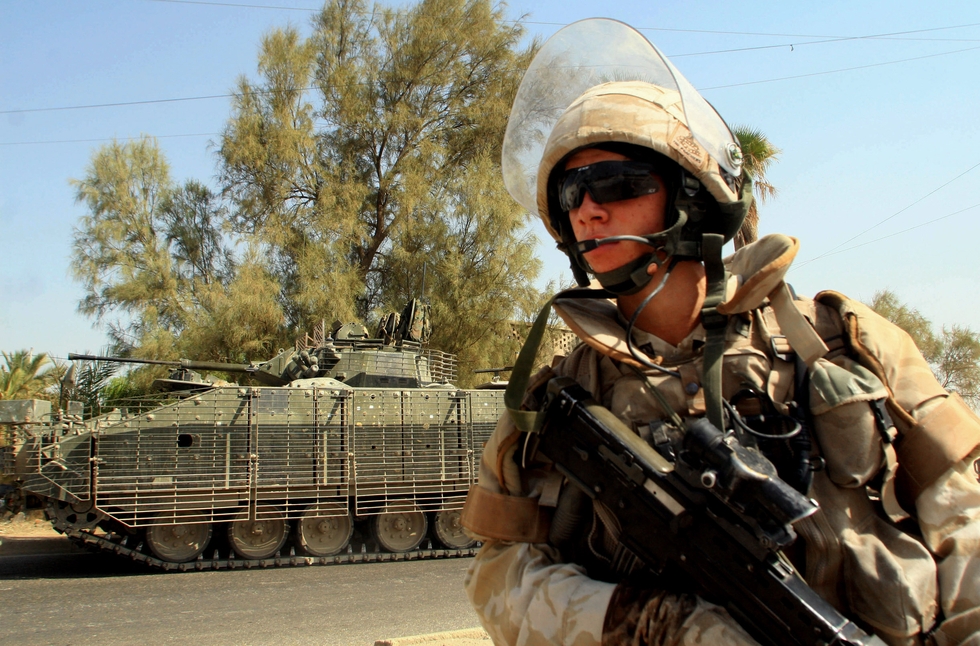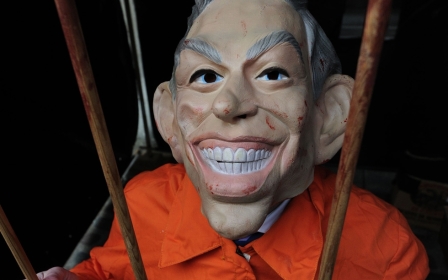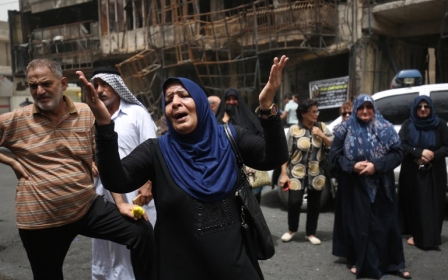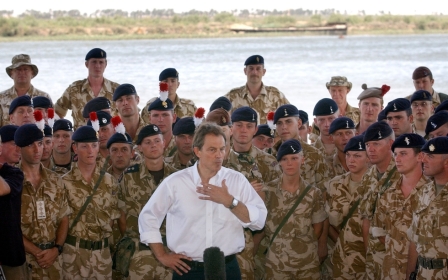British soldiers threw Iraqi looters in Basra waterway: former captain

The British army forced Iraqi civilians into rivers and canals during the occupation of Basra as a means of cracking down on suspected looters, resulting in deaths from drowning, according to evidence given to an independent investigation into war conduct by British forces.
According to evidence released to the Iraq Judicial Investigations (IJI) body, the practice of so-called "wetting" by British soldiers may have been widespread and led to the drowning of a number of Iraqis, including minors.
An unnamed former captain of the Irish Guards told the group: “We used a variety of methods to deal with looters, such as sitting them in the sun with a bottle of water, taking their shoes off, or throwing them into one of the waterways.
“Because No 2 Coy [Company] had a body of water, throwing looters into the river was not something I would have been surprised to see them doing.
“I remember driving past and seeing it. It was commonplace for them to do that, but not for No 1 Coy. But if we had also had water accessible, we would have done that all the time.”
No statistics exist on the number of people who may have died as a result of “wetting,” but the families of two teenagers, Ahmed Jabbar Karrem Ali, 15, and Said Shabram, 19, have brought claims for damages against the UK government after the teenagers drowned in two separate incidents in Basra in May 2003.
In evidence given to Iraq Judicial Investigations in May, a second British officer, who commanded troops accused of forcing civilians into the Shatt al-Basra waterway, said he was unaware of "wetting" as a practice.
However, the former captain said that he had discussed the incidents at the British army's local HQ in Basra and there was "absolutely no way that our commanders could not have known about this".
In his statement, the former captain described how crowds of civilians came out on to the streets of Basra to watch the fighting between British and Iraqi troops.
“Suddenly, we were in control of a city that didn’t have any water or electricity and we didn’t know what to do,” he said.
Initial attempts to arrest looters were impractical due to their high numbers.
“There were swarms of them... they stole everything. On one occasion, I stopped an old man who was stealing a lamppost from a motorway. I’d never seen anything like it before."
The former officer added in his statement that troops then began pushing looters into rivers. “This practice was absolutely known and understood by every single person in Basra,” he said. “Unless you were an idiot, you could not have missed it and the talk of looters and what we did with them was on everyone’s lips all of the time.
“Everyone knew, even in our HQ – of that l have absolutely no doubt. I’m not saying it happened a lot, but it happened. If someone said they didn’t know about the practice and what was happening I would unequivocally call them a liar as everyone knew. It may have been that some people such as those doing the catering didn’t know, but every single officer knew.”
The reports were released shortly before the publication of the Iraq Inquiry led by Sir John Chilcot on 6 July, which is expected to condemn those responsible for taking Britain to war in Iraq.
The Chilcot report is likely to cover the UK's preparedness and actions in Iraq as an occupying power.
There have already been calls from Labour and Scottish National Party MPs for former prime minister Tony Blair to face criminal charges over the revelations of the report.
This article is available in French on Middle East Eye French edition.
New MEE newsletter: Jerusalem Dispatch
Sign up to get the latest insights and analysis on Israel-Palestine, alongside Turkey Unpacked and other MEE newsletters
Middle East Eye delivers independent and unrivalled coverage and analysis of the Middle East, North Africa and beyond. To learn more about republishing this content and the associated fees, please fill out this form. More about MEE can be found here.




